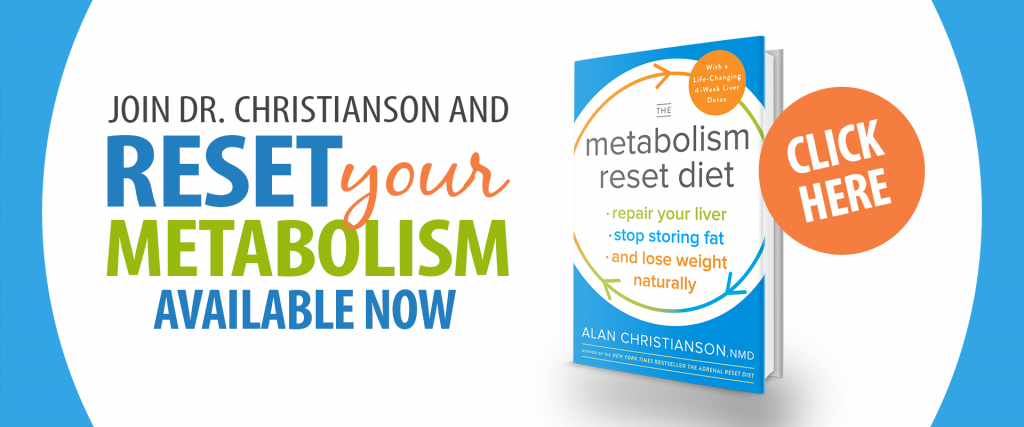Have you found yourself dealing with sudden weight gain due to menopause? I would love to introduce you to some causes, solutions, and action steps that you can start implementing today to help you lose weight during menopause.
Whether learning about how to lose weight with thyroid and menopause, or how to lose weight during menopause and hypothyroidism, I want to help you.
While there might be some additional considerations that you are going to have to make on the way, once they are gone, it can be as straightforward as losing weight at just about any other point of your life.

Menopause & “Adrenopause”
During menopause, there are a lot of things “pausing.” Of course, when we think of menopause we commonly associate it with the ovaries decreasing their glandular output. But we also have to consider the decrease in androgenic hormones, too.
Androgenic hormones come from the ovaries, but they also come from the adrenals. This leads to a decline in both testosterone, as well as DHEA. This can affect how the body controls blood sugar, and they control whether the same fuel is directed towards muscle tissue (as glycogen), or towards visceral fat (as additional fat growth).1
We can also see a shift in the cortisol-to-cortisone ratios during menopause. Even independent of what the adrenal glands do, there is more cortisol. That can be made from the:
- Visceral fat
- Liver
- Brain
Then, we can also see an additional strain on the adrenals themselves. In general, the ovaries are making less and less of their hormone, and the adrenals are being forced to make more to compensate.
Bottom Line: As estradiol goes down, the adrenals have to work harder to make estrone to compensate for this loss. When they do, they now have less capacity to make DHEA, testosterone, and cortisol or cortisone.
Thyroid Disease
Another factor is that thyroid disease increases during the period of menopause. This is due in part to the fact that, during each additional decade of life, the risk of thyroid disease climbs higher and higher.
This is why you may have been left wondering to yourself about how to lose weight after menopause and hypothyroidism, or losing weight with Hashimoto’s and menopause.
More specifically, though, thyroid disease can reveal itself during moments of large hormonal shifts in the body. These can include:
- Puberty
- Pregnancy
- Menopause2
These are all big moments of hormonal shifting in a woman’s life, and this is also the time that thyroid disease comes about (when it is present).
Bottom Line: Due to the very nature of menopause, it is important to know that thyroid disease can become present during this type of hormonal shifting within the body.
Hepatopause
This is another type of “pause” that we might see in the body. This is when the liver becomes less able to regulate fuel properly. When the liver is perfectly healthy, it stores any extra fuel and makes it available when you need it the most.
If the liver gets less healthy, it has less room to store glycogen. This means that, instead, it gets jammed full of triglycerides. This leads to fatty liver disease, but also makes it to where there is no real “window” for metabolism.
Fatty liver is a sign that the body is not burning its fuel right. It is when your liver stores more than it needs, and causes it to enlarge. Your typical healthy liver has about 1 – 3% fat, and a state of fatty liver is when that number goes beyond 5% (disease sets in at around 10%).
All this fat can lead to problems like:
- A poorly functioning liver
- Liver tissue scarring
- Liver cancer
Bottom Line: All in all, you want to avoid having trouble with your liver. It can results in every extra amount of food being stored, to the point where any time that you do decrease your food intake – you ultimately feel wiped out and crashed.
Less Androgens
There can also be a decrease in basal metabolic rate, but that is proportionate to loss of muscle mass. This is something that I will dive into later, but I want you to know now that it is totally reversible given the right steps.
Action Steps: Menopause & Weight Gain

The main approach that we need to consider is to regain this balance of hormones. For this reason, we really need to consider the adrenals as central to that restoration of balance.
That is where the Adrenal Reset Diet comes into play (The Adrenal Reset Diet Book). The point of the diet is to regain an overall healthy cortisol slope. This results in high cortisol in the morning, and low cortisol at night, when you need it most and when you need it least.
When your cortisol slope is not optimal, it can be the key driver for many different symptoms in your body (Read: Adrenal 101 the myths and the science behind adrenal stress fatigue). The types of symptoms that can be included are:
- Fatigue
- Depression
- Insomnia
- Anxiety
- Easy weight gain
- Digestive disturbances
- Inflammation
The redeeming quality of your cortisol slope, even when it is a driver of much of the negative symptoms in your body, is that it can be changed. We can affect an effect on the cortisol slope by identifying and dealing with the following issues:
- Changes in blood sugar
- Problems with sleep
- Early-life traumas
- Chronic ongoing stress
- Changes in lifestyle
Bottom Line: If you are effectively able to disrupt any of these key issues, you are better able to regulate your cortisol slope and get it back to where it belongs. Think of it like a menopause metabolism reset.

Adrenal Reset Diet: Action Steps
This is done not so much by cutting things or avoiding foods altogether. Instead, what I wanted to focus on was putting the focus on the idea of rhythm and timing for your body’s needs.
It focuses on whole, natural, and simple foods, but always getting a nice mixture of good:
- Carbs
- Fats
- Proteins
If you do the timing right, your carb intake will be lowest in the morning, and highest as the day progresses. That is done because carbohydrates naturally lower cortisol. In the morning, you do not need it, but later in the day, you do.
Key Insight: Carbohydrates can play a strategic role in your weight loss, and can do a lot of work to ensure that your cortisol slope is in good shape.
If you have carbohydrates, you can let your cortisol levels go lower. The strategy is to tailor your diet of carbs in order to get your cortisol levels to the right levels, at the appropriate times (as we discussed before, we want them high in the morning, and low in the evening – like a perfect ski hill).

Sleep
We see all the relationships between sleep and body weight, and the truth is that you need some cortisol at night to ensure that your sleep is high quality. I have also been happy to explain this unique relationship between sleep and the Adrenal Reset Diet before, and I would love for you to learn more about it right now (Read: Why is sleep so important on the adrenal reset diet).
Bottom Line: Sleep is so important to your overall health and happiness. If you are having problems sleeping, I would recommend that you learn more about your sleep, and how it might be affecting your body. You can even learn a little bit more about wake therapy, which I have written about in the past (Insomnia when you’ve tried everything and still can’t sleep).
Protein
You also need your body making a good cortisol rhythm so that the adrenals can help to compensate for the changes occurring in the ovaries during a time like menopause.
With that in mind, there is also an advantage to getting a healthy amount of protein in your diet. So, the adrenal reset diet focuses on getting roughly 25 – 30% of calories from protein.
That’s the great thing about protein, nearly all foods have some amount. We do not want to focus on the tiny sources of protein we might find in our diets, though, we want good, well-rounded sources of protein. This is where we need to differentiate the higher sources of protein, which include:
- Meat
- Fish
- Poultry
- Pork
- Dairy foods
- Eggs and egg whites
- Soy foods
- Protein powders
- Beans and legumes
- Nuts
- Seeds
- Seafood and shellfish
- Some grains (quinoa, amaranth, oats)
This allows your body to retain muscle mass more effectively. Once you combine that with some:
- Strength training, and
- Appropriate levels of aerobic exercise
This can help reverse what some might consider “inevitable” weight gain during menopause. Instead, it can be entirely manageable, and it can never be an issue at all!
Bottom Line: When it comes to your protein, it is important to consider it in terms of “protein per calorie.” This is important to note because you could have superb amounts of protein in your diet – but an overall lack of protein per calorie. In this case, you would not be deficient, but you certainly would not be optimal either.

Menopause, Weight Gain, and You
If you’ve ever thought to yourself, “how can I lose weight with hypothyroidism and menopause,” I hope this article helped.
What I want you to know is that there are many reasons why weight gain during menopause is not insurmountable, and what you can do to put yourself on the right track today. Once you really identify and manage those causative factors, things can become easier.
Are you interested in maintaining a good, healthy body weight? What about dealing with some of the symptoms plaguing your everyday experience (from weight gain to fatigue)? Regardless of hormone levels, or menopause status, your adrenals are the key. Learn more about them by taking the Adrenal Quiz (Click Here) today, and we can begin to talk through some of the first steps you can take to get your health back where it belongs.
Sources
1 – https://academic.oup.com/biomedgerontology/article/58/5/M409/536121
2 – https://www.ncbi.nlm.nih.gov/pubmed/12724022

1. Schedule a Thyroid Second Opinion with me, Dr. C, Click Here for Details
2. Download and use my Favorite Recipes Cookbook Here
3. Check out my podcast Medical Myths, Legends, and Fairytales Here
Dr. Alan Glen Christianson (Dr. C) is a Naturopathic Endocrinologist and the author of The NY Times bestselling Adrenal Reset Diet, The Metabolism Reset Diet and The Thyroid Reset Diet.
Dr. C’s gift for figuring out what really works has helped hundreds of thousands of people reverse thyroid disease, lose weight, diabetes, and regain energy. Learn more about the surprising story that started his quest.


